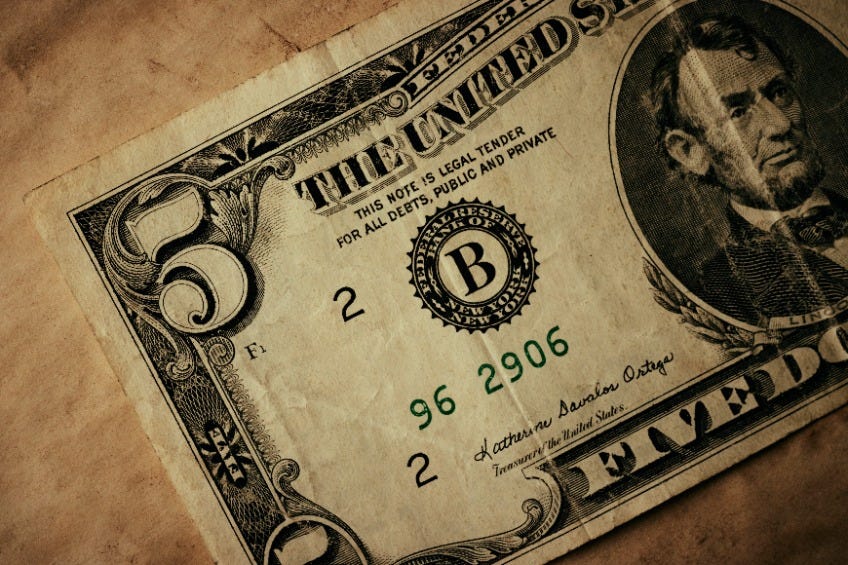Issue #446 Black History Thursday, January 4, 2024
Welcome to this Today in Black History post. Black History IS American History, no matter how hard some people try to erase our history and contributions.
A lot of this information is available at yenoba.com, blackfacts.com, and onthisday.com.
This post is free to read/listen to for two days. To have 365 24/7 access to all our posts and podcast episodes and financially support “We Are Speaking” for no more than $5 per month, please subscribe at the paid level.
Are you an independent author or creative professional looking for a place where you can tackle those branding and marketing challenges and learn with me through valuable books and online courses? The Global Creative Community Branding and Marketing Academy (GCC BMA) is for you!
Today’s Black WOW!
When I was a public school teacher, primarily of the middle and high school grades, and later a college instructor, I always taught the entirety of history, including the history of peoples of the African Diaspora. I was similarly taught by my grandparents, my parents, and a few very brave teachers when I was in school.
On January 1, 2024, the Caribbean country of Haiti celebrated 220 years of independence.
A statement by the Prime Minister of Canada: “On January 1, 1804, the people of Haiti overcame over a decade of revolts and three centuries of colonial rule to set the country on an independent path. With this historic victory, Haiti became the first country to be founded by former slaves, inspiring hope for other nations striving for freedom and independence.”
To truly understand the events that led up to Haitian independence, it is important to know the conditions under which the people of Haiti were living during this time. Haiti, then known as Saint-Domingue, was a French colony that relied heavily on the labor of enslaved Africans to cultivate and produce vast quantities of sugar, coffee, and indigo.
The enslaved population outnumbered the white population by a considerable margin, and conditions were abhorrent. Brutal treatment, inhumane living conditions, and the constant threat of violence hung over the heads of the enslaved Africans.
However, as the winds of revolution swept through the world in the late 18th century, the people of Haiti began to see a glimmer of hope. Inspired by the ideals of the French Revolution and fueled by their own desire for freedom, they slowly began to organize and resist their oppressors. The spark that ignited the flame of revolt came in 1791 when a Vodou ceremony held in the northern region of the island turned into a full-scale rebellion.
This rebellion, led by Toussaint Louverture, a former enslaved man who had become a skilled military strategist, was initially aimed at securing the rights and freedom of the enslaved population. However, as the revolution progressed, the goal shifted towards complete independence from France. The enslaved Africans, who had proven their resilience and military prowess, fought tenaciously against the French forces and their allies, including the British and Spanish.
The turning point in the struggle for independence came in 1802 when Napoleon Bonaparte, who had successfully risen to power in France, dispatched a large expeditionary force to Saint-Domingue to quell the rebellion.
But the tropical environment, coupled with the guerrilla tactics employed by the Haitian revolutionaries, took a heavy toll on the French army. Moreover, yellow fever and other diseases ravaged the French forces, ultimately leading to their defeat.
In 1804, after more than a decade of struggle, the Haitian people declared their independence, making Haiti the first black republic in the world.
Haiti's debt to France and other countries can be traced back to the aftermath of the Haitian Revolution and its struggle. To secure recognition as an independent nation, Haiti was forced to pay reparations to France, its former colonial power.
After declaring independence in 1804, Haiti faced economic isolation from the global community. Many countries, including France and the United States, refused to recognize Haiti as a legitimate nation because of its history of slave rebellion and fears of inspiring similar uprisings in their own colonies. The reparations were a financial burden on the newly independent nation, making it difficult for Haiti to invest in its own development and establish a stable economy.
Furthermore, France and other countries placed trade embargoes and economic sanctions on Haiti, further exacerbating its economic struggles. These conditions, along with political instability and corrupt governance, have contributed to Haiti's ongoing poverty and debt crisis.
Overall, Haiti's ongoing debt repayment reflects the long-lasting consequences of colonialism, slavery, and the struggle for independence. The debt burden continues to hinder Haiti's progress and perpetuate a cycle of poverty and dependence on foreign assistance.
Even today in the United States, Haitians seeking immigration to America are treated far more cruelly than Cubans escaping Cuba.
Today In Black History
- In 1904, the US Supreme Court ruled that Puerto Ricans were not aliens and could not be refused entry to the continental United States. Puerto Ricans did not achieve American citizenship until 1917.
- In 1920, Andrew “Rube” Foster organized the Negro Baseball League.
- In 1923, the affluent Black town of Rosewood, Florida was destroyed by a white mob.
- In 1944, Ralph Bunche was appointed as the 1st African American official in the State Department.
- In 1971, the Congressional Black Caucus was organized.
- In 2005, Barack Obama was sworn into the United States Senate, becoming the 3rd African American Senator since Reconstruction and the 5th in American history. He served on the Foreign Relations and Veteran’s Affairs Committees.
The “Comments” feature has been disabled. Instead, let’s discuss these facts in our community on Substack Notes. You can also read other Substack publications without subscribing to them when you join Notes.






